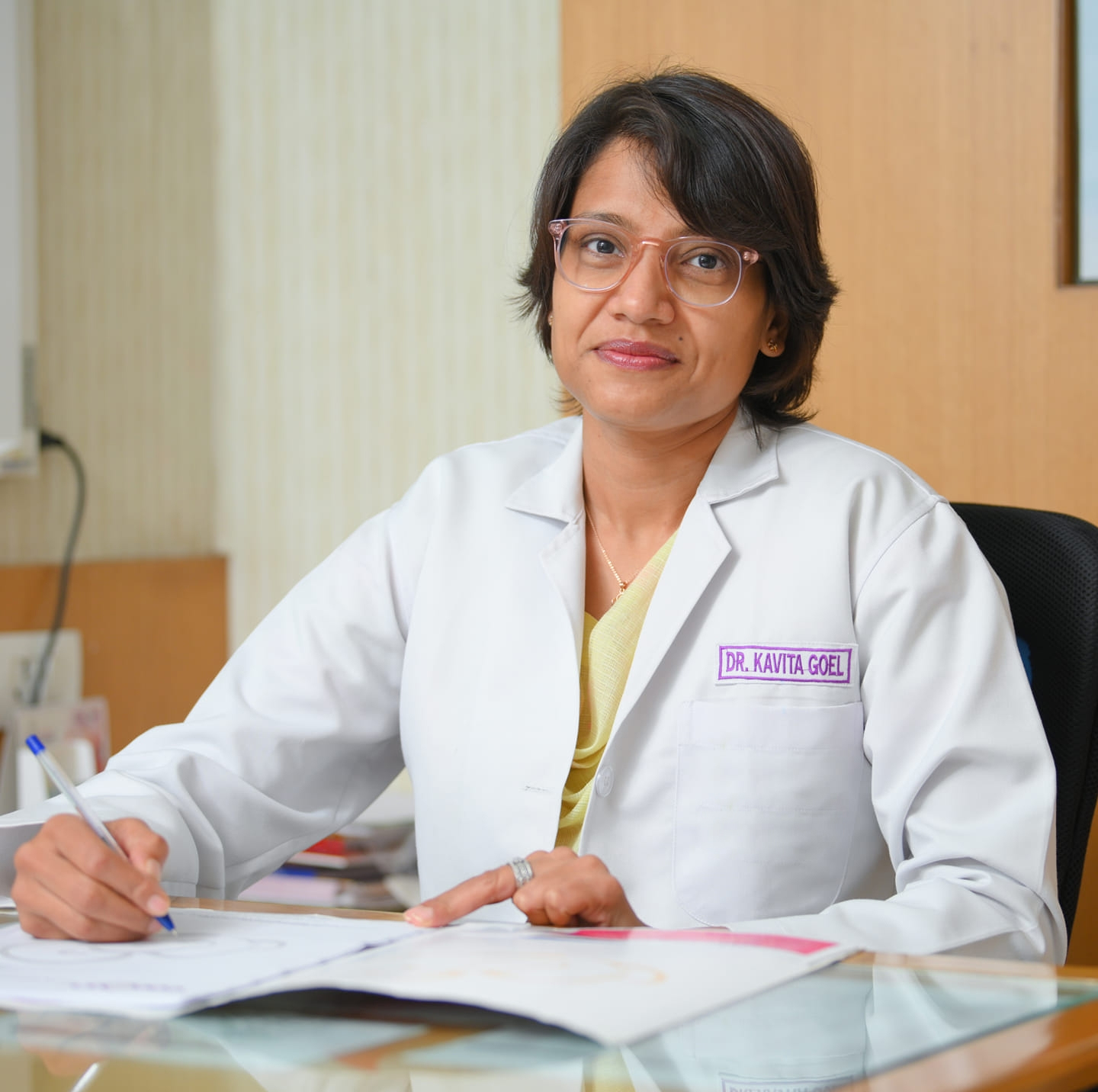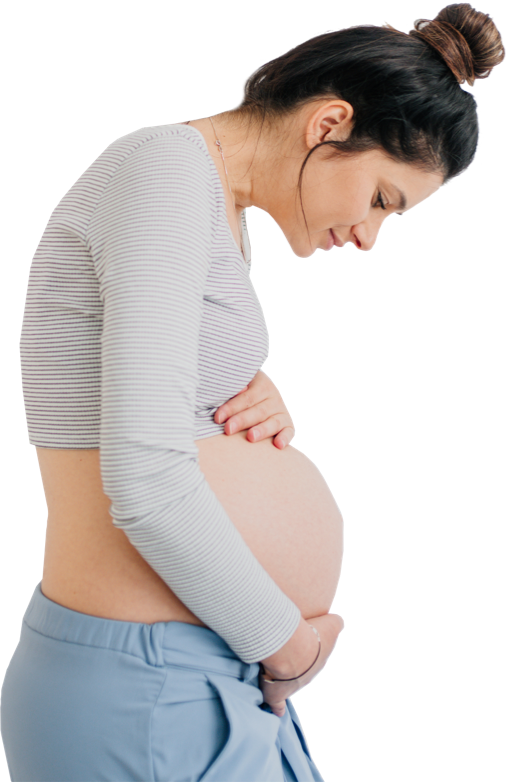PCOD Treatment in Jaipur
Pregnant women are susceptible to the frequent hormonal conditions known as Polycystic Ovarian Disease (PCOD) and Polycystic Ovarian Syndrome (PCOS).
PCOS is a severe disorder where the ovaries overproduce androgens, which can result in the production of excess cysts. It could lead to metabolic problems, infertility, and other health problems.
PCOD disorder is characterized by the ovaries producing immature, unclean eggs that eventually develop into cysts. It is less severe and has no effect on fertility than PCOS.
PCOS/PCOD- The Problem.
The two major health issues affecting women are PCOD and PCOS, which have an impact on mental and physical health in addition to the reproductive system. This may throw off the hormone balance, resulting in a variety of health issues such as irregular menstruation, infertility, and metabolic issues. If anyone is suffering from PCOD or PCOS health difficulties, they need to start PCOD treatment right away to avoid more serious problems in the future.
PCOD and PCOS are major health issues that can have many reasons, including an increased risk of obesity, diabetes, and cardiovascular illnesses.
- Cancers like breast, ovarian, and endometrial cancers.
- Elevated blood pressure, difficulty sleeping, and blocked kidney renal arteries.
- Psychological conditions include despair and anxiety.
- Inability to conceive or trouble doing so.
Treatments
Causes Of PCOS/PCOD
PCOD and PCOS aim to identify the underlying causes to facilitate early diagnosis and successful treatment. We treat PCOD and PCOS in Jagatpura, Jaipur taking into account your health concerns and guarantee that you will recover from your ailment before it worsens. The following are the main causes and dangers of this issue, which may be the source of your health issues:
- Lifestyle Factor: The issue becomes worse and health complications are increased by obesity, poor diet, and inactivity.
- Genetic: It may be genetic or linked to family history, in which PCOS greatly raises the risk.
Insulin Resistance: Diabetes, which leads to hormonal imbalances and increased testosterone production, is also indicated by elevated insulin levels. - Hormonal Imbalance: In addition to causing hormonal imbalance and mood swings, excessive male hormone production interferes with regular ovulation.
- Environmental Factor: Hormones can be impacted by contact with environmental pollutants, which may contribute to difficulties.
Symptoms
PCOS/PCOD Doctor in Jagatpura Jaipur
As PCOD and PCOS symptoms might differ, you should discuss your concerns with a PCOD specialist. The following symptoms, if we take into account the same issues with PCOD and PCOS, show that you need to see the best PCOD & PCOS doctor in Jaipur:
- Irregular Menstrual Cycle: It is a clear indication of the problem if you experience long periods or long intervals between periods, little bleeding, or no periods at all.
- Ovarian Cysts: If you have been diagnosed with cysts or small cysts in your body, it’s a significant part of your illness.
- Elevated Androgen Level: Male pattern baldness, acne, and abundant body hair are all symptoms of elevated testosterone levels.
- Weight Gain: PCOS and PCOD can cause persistent weight gain, as well as make it difficult to control your weight.
- Skin Issues: Skin darkening in places like the neck, under the breasts, and thighs is a sign that your body has this condition.
- Mood Swings and Fatigue: Hormonal abnormalities can cause anxiety, low energy, and frequent mood changes.
Diagnosis
PCOS/PCOD Specialist in Jagatpura, Jaipur
Consult the top PCOD specialist in Jagatpura, Jaipur, if you are experiencing any of these symptoms. If you don’t get treatment right away, it could lead to serious health issues. Certain steps must be followed to identify PCOD and PCOS and guarantee the correctness of your results
Here are the defined steps, follow to diagnose the issue:
Medical History
See the best PCOD specialist doctor near you, as we offer the best PCOS and PCOD treatment in Jagatpura, Jaipur. Tell them about all of your health issues, including periods that are irregular, weight fluctuations, and any family history you may have, as these conditions may run in families.
Physical Examination
Check your body, if you are facing any physical symptoms of your concern.

Dr. Kavita Goel
Dr Kavita is a renowned Gynecologist and Gynae Laparoscopic surgeon and strongly believes in Evidence-Based Practice.
She has also published many featured article related to Obstetrics and Gynecological care in leading newspapers and magazines like Rajasthan Patrika, Danik Bhaskar and many more.
Dr. Kavita Goel has more than 20+ years of experience in this field. She has a patient oriented approach and is well updated with latest treatment protocols.
M.B.B.S
Sawai Man Singh Medical College, Jaipur, Rajasthan (2003)
- M.S.
S.P.Medical College, Bikaner, (2006-2009) First Attempt Qualifications (FELLOWSHIP)
FMAS (Fellowship In Minimal Access Surgery 2018)
FGES(Fellowship In Gynae Endoscopic Surgery 2019)Work Experience
Assistant Professor in S.M.S MEDICAL COLLEGE JAIPUR (2 years)
Clinical Associate in SION (LTMGH) Hospital Sion MUMBAI (1 year)
Clinical Associate in Hinduja Hospital Mahim MUMBAI (1 year)
Clinical Associate in Bombay Hospital Marine Lines MUMBAI (1 year)
Clinical Associate in ESIC Hospital MGM Hospital Parel MUMBAI (1 year)
Clinical Associate in Fortis Hospital Jaipur (2 years)
Consultant at Cocoon Hospital Jaipur from (3 years)
Membership
- MCI-2005-IMR-8219
- Member Of FOGSI
- Member Of AGESR
- Member Of ESI
- Member Of IAGE
Registration
RMC – 022249
FAQs
Most patients who are having a hysterectomy to treat abnormal uterine bleeding or fibroids can have a laparoscopic hysterectomy. It may not be possible in some cases. For example, if the uterus is bigger than a 4 month pregnancy but depends on the surgeon, if she’s had multiple previous operations in her lower abdomen. It is usually not done for women with a gynecologic cancer.
An ovarian cystectomy is surgery to remove a cyst from your ovary. Laparoscopic surgery is a minimally invasive surgery technique that only uses a few small incisions in your lower abdomen.
Many women will have an ovarian cyst at some point during their lives. Commonly, cysts will cause little to no symptoms. However, if a cyst is causing painful or discomforting systems, surgical removal of the cysts may be the best treatment option. Some symptoms of an ovarian cyst include pelvic pain, especially during your period or sexual intercourse.




